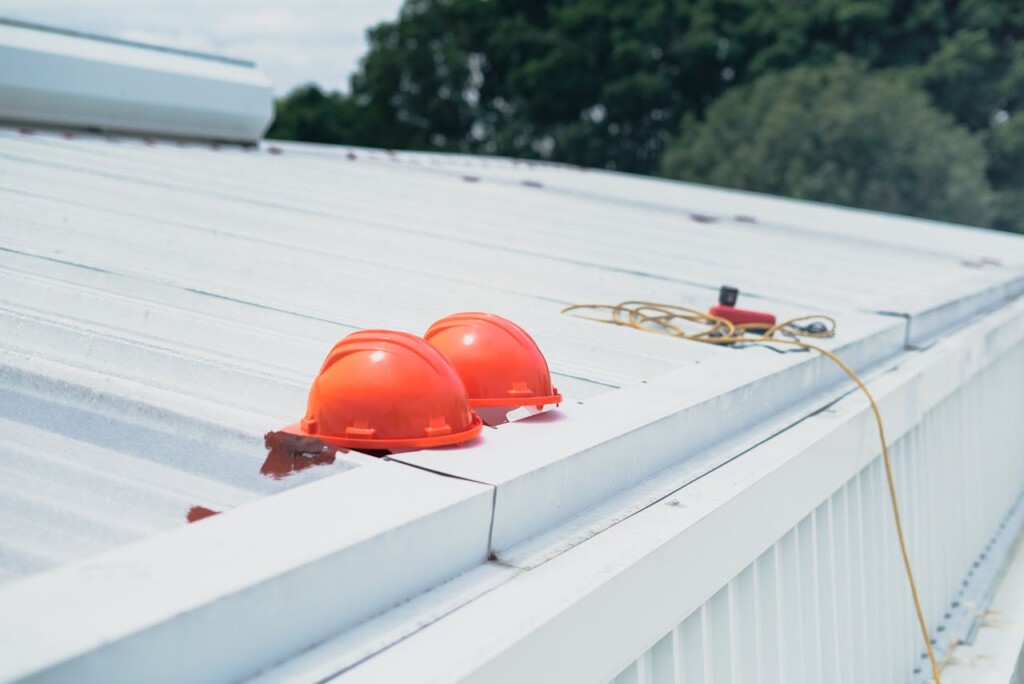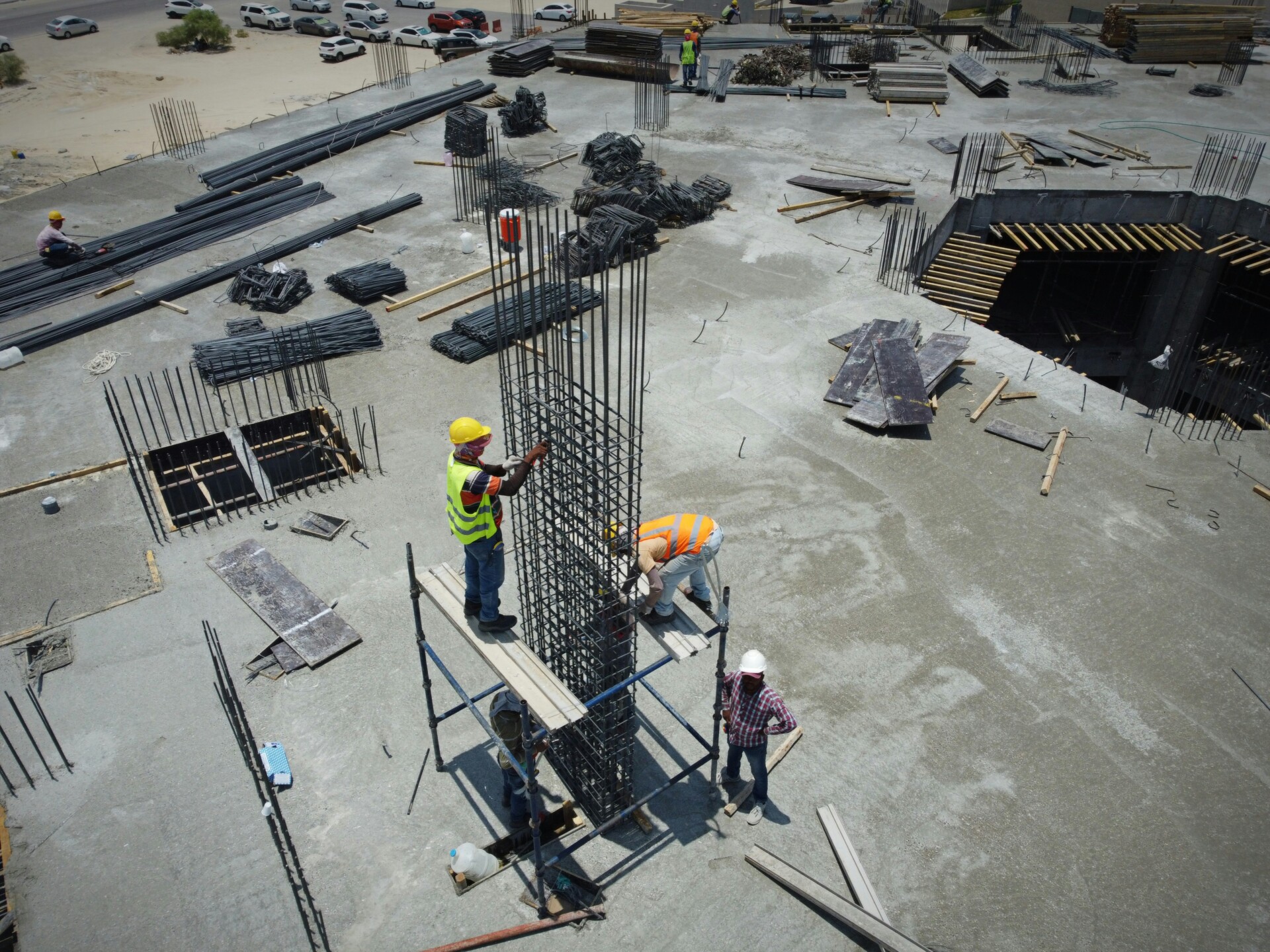Building a franchise in construction transforms your successful business model into a scalable system that other builders can operate under your brand. This process requires licensing trademarks, codifying construction methods, and establishing comprehensive training programs that ensure consistency across multiple locations. The construction industry presents unique franchising challenges, from managing site-specific regulations to standardizing complex project workflows while maintaining quality control.
Franchising construction businesses operates under federal and state regulations that require detailed legal documentation, disclosure processes, and ongoing compliance measures before any franchise agreements can be sold. The path forward involves systematic readiness assessment, legal framework development, operational system design, strategic sales and recruitment, plus sustained launch support that enables builders to expand with predictable results.
What Legal And Readiness Steps Come First?

Preparing to franchise your construction business requires methodical attention to legal foundations and operational readiness. We approach this phase systematically, ensuring each component builds toward sustainable franchise operations.
Assess Your Business Model’s Franchise Viability
We first evaluate whether your construction business possesses the core characteristics that make franchising viable. The model must demonstrate consistent profitability across different market conditions and project types. Beyond financial performance, the business systems need to be scalable without requiring your direct involvement in every decision.
The construction processes we’ve developed must be teachable to other business owners who may lack your experience. This means documenting everything from estimating procedures to project management workflows. If success depends heavily on personal relationships or specialized skills that can’t be transferred, we reassess the franchising approach.
Secure Federal Trademark Registration
Brand protection forms the cornerstone of any franchise system. We initiate federal trademark registration with the U.S. Patent and Trademark Office for our business name, logo, and any distinctive service marks. State-level trademark registrations won’t suffice for franchise operations.
The registration process typically takes 12 to 18 months, so we begin this immediately. We protect not only the primary brand name but also any taglines, specialized service names, or distinctive operational terminology that defines our market position.
Establish A Dedicated Franchise Entity
We create a separate legal entity specifically for franchise operations. This franchise company entity serves as the franchisor, handling all franchise sales, fee collection, and ongoing relationships with franchisees. The structure provides liability protection for other business operations and creates clean financial reporting for franchise activities.
This entity receives initial franchise fees and ongoing royalties from franchisees. We work with legal counsel to determine the optimal structure, whether that’s a limited liability company or corporation, based on tax implications and operational requirements for multi-state franchise operations.
Develop The Franchise Disclosure Document
The Franchise Disclosure Document represents the most comprehensive legal requirement in franchising. This document must contain 23 specific items covering everything from our business history to financial performance representations. We disclose litigation history, bankruptcy records, and detailed business experience for all key personnel.
The FDD explains initial franchise fees, ongoing royalties, territory rights, training programs, and operational obligations. We detail startup costs, supplier requirements, and any restrictions on franchisee operations. Financial statements require professional auditing, typically spanning three years of company performance.
Creating this document demands collaboration between legal counsel, accountants, and internal teams who understand every aspect of our construction operations. The process typically requires three to six months for initial completion.
Navigate State Registration Requirements
Fourteen states require franchise registration before we can legally offer franchises within their borders. These registration states include California, Illinois, Maryland, Minnesota, New York, and Virginia, among others. Each state examines our FDD, financial condition, and overall franchise offering before granting permission to sell.
State registration involves submitting our FDD along with additional forms, financial statements, and fees. Some states require bonds or escrow arrangements if our financial condition doesn’t meet their standards. We plan for this process during FDD development since state approval can take several months.
Comply With Disclosure Timing Requirements
Federal law mandates specific timing for franchise disclosure. We must provide the complete FDD to prospective franchisees at least 14 calendar days before they sign any franchise agreement or make any payments. If we modify the franchise agreement after initial disclosure, prospects receive the final contract at least seven days before signing.
These disclosure periods protect prospective franchisees by ensuring adequate review time. We build these requirements into our sales process from the beginning, avoiding any pressure tactics that could violate federal franchise regulations.
Create The Operations Manual Framework
While developing the FDD, we simultaneously begin our operations manual. This confidential document becomes the blueprint for franchise operations, covering everything from project estimation to customer service standards. The manual includes safety protocols, quality control procedures, and administrative systems.
We document our construction methodologies, supplier relationships, and technology requirements. The manual serves dual purposes: training new franchisees and maintaining consistency across all franchise locations. Initial versions focus on core operational elements, with detailed sections added through experience with early franchisees.
Establish Multi-Year Growth Objectives
We set realistic goals for franchise development over the first three to five years. These objectives include target numbers of franchise units, geographic expansion plans, and revenue projections. Growth planning considers our capacity to support franchisees with training, ongoing assistance, and quality control.
We plan for multi-state compliance from the start, even if initial franchise sales occur locally. This forward-thinking approach prevents expensive restructuring when expansion opportunities arise. We also establish financial reserves for supporting franchise operations during the critical first years when franchise fee income may not cover all system costs.
How Do You Design The Franchise System And Operations?
Transforming your construction business into a franchise requires documenting every aspect of how you build and operate. We start by creating a comprehensive operations manual that captures our brand purpose, field operations standards, and marketing requirements. This document becomes the foundation for consistency across all franchise locations.
Building The Operations Manual Foundation
The operations manual serves as your franchise blueprint, documenting everything from project opening steps to service standards. We include detailed procedures for field operations, covering how teams coordinate sitework, manage construction schedules, and maintain quality control. Each process gets broken down into specific, actionable steps that any franchisee can follow.
Brand purpose and values appear throughout the manual, reinforcing what sets your construction company apart. We document approved suppliers and vendor relationships, ensuring franchisees maintain consistent material quality and pricing advantages. Administrative requirements cover financial reporting, customer communication protocols, and compliance procedures that protect both the franchisor and franchisee.
Creating Training Programs That Scale
Initial training programs prepare new franchise owners for success from day one. We develop curriculum covering construction fundamentals, safety protocols, and customer service standards specific to our market approach. Training materials include hands-on workshops for field operations, classroom sessions on business management, and mentorship pairing with experienced operators.
Ongoing training keeps franchisees current with evolving construction methods and regulatory changes. We establish regular update sessions, seasonal preparation workshops, and skill advancement programs. Technology platforms support remote learning and provide access to updated procedures, ensuring consistent implementation across all locations.
Technology Systems And Supply Chain Coordination
Technology systems streamline operations and maintain communication standards across the franchise network. We implement scheduling software that coordinates project timelines, tracks material deliveries, and manages crew assignments. Communication platforms ensure consistent customer updates and progress reporting.
Supply chain processes leverage collective purchasing power while maintaining quality standards. We establish relationships with designated suppliers who can serve multiple territories, negotiate volume pricing, and ensure reliable delivery schedules. Procurement systems track material usage patterns and identify cost optimization opportunities across the network.
Data management systems capture performance metrics, customer satisfaction scores, and financial indicators. This information helps franchisees optimize their operations while providing valuable insights for system-wide improvements and best practice sharing.
Territory Planning And Market Research
Market research drives territorial boundaries that protect franchisee investments while maximizing growth potential. We analyze demographic data, construction activity levels, and competitor presence to define viable service areas. Buffer zones prevent encroachment between territories and ensure adequate market size for sustainable operations.
Territory mapping considers population density, commercial development patterns, and infrastructure growth projections. We evaluate permit activity, housing starts, and commercial construction permits to identify high-opportunity areas. Geographic boundaries account for natural barriers, transportation routes, and service delivery logistics.
Multi-unit development structures allow successful franchisees to expand within defined regions. We create territorial frameworks that support both single-unit operators and growth-focused partners while maintaining market balance and preventing oversaturation.
Franchisee Screening And Vetting Process
Vetting criteria ensure we select partners who can successfully execute our construction model. We establish financial requirements that cover startup costs, working capital, and operational reserves. Experience standards evaluate construction knowledge, business management capabilities, and leadership skills necessary for franchise success.
The screening process includes application reviews, background checks, and structured interviews that assess cultural fit with our brand values. We verify financial capacity through bank statements, credit reports, and professional references. Character evaluation examines work history, community involvement, and commitment to quality standards.
Reference checks with previous employers, business partners, and industry contacts provide insights into candidate reliability and performance. We conduct site visits when possible, allowing candidates to observe operations firsthand while we evaluate their understanding of construction complexities and customer service expectations.
Piloting For System Refinement
Our first franchisee partnership serves as a critical testing ground for all documented systems and procedures. This pilot relationship allows us to identify gaps in the operations manual, refine training programs, and adjust support structures before broader rollout. We work closely with the pilot partner to track implementation challenges and success factors.
Pilot testing reveals practical issues that theoretical planning cannot anticipate. We monitor customer response, operational efficiency, and financial performance to validate our franchise model. Feedback from the pilot franchisee helps refine procedures, improve training materials, and strengthen ongoing support systems.
System refinement continues throughout the pilot period, with regular reviews and updates based on real-world experience. We document lessons learned, update training programs, and enhance support resources. This iterative approach reduces risk for future franchisees while strengthening the overall system foundation.
How Should You Plan Franchise Sales, Marketing, And Recruitment?

Creating a comprehensive franchise sales strategy and budget requires balancing immediate needs with sustainable growth. We develop a focused approach that positions our construction franchise for long-term success while attracting the right partners from day one.
Define Your Ideal Franchisee Profile And Target Markets
Successful franchisee recruitment starts with clarity about who makes an ideal partner. We define specific characteristics that predict success in construction franchising: experience managing teams, understanding of local building markets, and sufficient capital reserves for startup costs and working capital.
Geographic targeting aligns with market research and competitive positioning. We analyze construction demand, demographic trends, and regulatory environments to identify territories where our franchise model can thrive. This research informs both territory mapping and marketing channel selection.
Build A Clear Brand Story And Value Proposition
A compelling brand story differentiates our franchise opportunity in a crowded marketplace. We articulate what makes our construction approach unique, how we support franchisee success, and the specific advantages we offer over competitors or independent operation.
The value proposition addresses key franchisee motivations: proven business systems, established supplier relationships, ongoing training programs, and marketing support. We communicate these benefits through concrete examples rather than generic promises, showing potential partners exactly how we help them succeed.
Establish Organic Web Presence And Lead Capture Systems
Our franchise opportunity page serves as the foundation for organic SEO and lead generation. We develop content that addresses common questions about construction franchising while incorporating keywords that prospects use when searching for opportunities.
The lead capture form balances information gathering with user experience. We collect essential qualifying information without creating barriers that discourage initial contact. Supporting content includes success stories, frequently asked questions, and detailed information about our training and support programs.
Organic search optimization takes time to generate results, but it creates sustainable lead flow without ongoing advertising costs. We develop content calendars that regularly add valuable information while maintaining search engine relevance.
Strategic Use Of Paid Marketing Channels
Paid advertising requires dedicated landing pages and follow-up processes before launch. We create targeted campaigns only when we can properly nurture leads through structured drip campaigns and personal outreach.
Landing pages focus on specific audience segments with tailored messaging. Rather than generic franchise information, we address particular concerns or interests that brought prospects to our ads. Clear calls-to-action guide visitors toward meaningful engagement.
Social media advertising allows precise targeting based on demographics, interests, and behaviors that correlate with franchisee success. We test different creative approaches and messaging to identify what resonates with qualified prospects.
Channel Mix Strategy
Effective franchise recruitment requires multiple touchpoints across different channels. We combine organic web traffic, social media engagement, public relations efforts, and selective broker partnerships to reach prospects where they conduct research.
Reputable franchise brokers provide access to pre-qualified prospects who are actively seeking opportunities. We work with established broker networks that understand construction franchising and can effectively communicate our value proposition to their clients.
Online franchise portals require caution for new franchisors. While these platforms generate leads, they often produce less qualified prospects and charge significant fees. We evaluate portal partnerships carefully, focusing on those with strong reputations and relevant audience reach.
Prospect Discovery And Education Process
Our discovery process balances information sharing with qualification. We provide detailed information about the franchise opportunity while gathering insights about prospect goals, experience, and financial capacity.
Educational content helps prospects understand construction franchising and evaluate whether our system aligns with their objectives. We share market analysis, operational insights, and realistic financial projections to support informed decision-making.
Regular communication through email sequences and scheduled calls maintains engagement while allowing prospects time to evaluate the opportunity thoroughly.
Competitive Research And Positioning
Understanding competitive landscape helps position our franchise fees, royalty rates, and territory structures appropriately. We analyze direct competitors and adjacent franchising models to ensure our offering remains attractive while maintaining profitability.
This research informs pricing strategy and helps identify unique selling points that differentiate our franchise. We track competitor marketing approaches, franchise disclosure documents, and public announcements about expansion plans.
Structured Screening And Vetting Process
Our screening process prioritizes thoroughness over speed. We use applications, background checks, financial verification, interviews, and reference calls to evaluate each candidate comprehensively.
Financial qualification includes reviewing liquid capital, net worth, and credit history. We verify these details through documentation rather than self-reporting to ensure candidates can meet ongoing obligations.
Multiple interview rounds allow both parties to evaluate fit. We assess management experience, communication skills, and alignment with our company culture and values. Reference calls provide insights into past performance and working relationships.
What Does Launch And Ongoing Support Look Like?
The franchise launch phase transforms your carefully documented systems into real-world operations. We work closely with our first franchisee to secure an optimal location through a commercial realtor, considering demographics, traffic patterns, and zoning requirements that align with construction service needs. Site selection often takes longer than anticipated, but rushing this decision compromises long-term success.
Build-out requires coordination between the franchisee, contractors, and our operations team to ensure brand compliance and functional workspace design. We provide recommended contractors and architects while maintaining oversight of the construction timeline. The physical setup includes office space, equipment storage, and meeting areas that reflect our professional standards and operational efficiency.
Initial Training And Business Planning
Training begins before the location opens and continues through the first months of operation. We deliver comprehensive instruction on service delivery, safety protocols, and customer care standards that maintain consistency across our network. Staff training covers project management software, communication systems, and quality control procedures that we use in our own operations.
Financial projections become the foundation for sustainable growth. We collaborate with franchisees to develop realistic revenue targets, expense budgets, and cash flow forecasts based on local market conditions. This business plan includes marketing strategies tailored to the territory, operational goals that align with our brand standards, and growth milestones for the first year.
Grand Opening And Market Entry
The grand opening generates awareness and establishes market presence through targeted outreach to developers, property owners, and commercial real estate professionals. We coordinate promotional activities that highlight our construction expertise while introducing the local team to potential clients. This launch period requires intensive support to address operational challenges and refine processes based on real project demands.
Early customer engagement often reveals gaps between training and execution. We maintain daily contact during the first weeks to troubleshoot issues, adjust workflows, and ensure quality standards. Local marketing efforts focus on building relationships with key decision-makers in the development community rather than broad consumer advertising.
Post-Opening Challenges And Solutions
Cash flow management presents the most common early challenge as construction projects typically involve extended payment cycles and upfront material costs. We provide guidance on invoicing procedures, collection strategies, and working capital management that reflects industry realities. Supply chain coordination requires ongoing attention as franchisees learn to balance cost, quality, and delivery timing.
Hiring skilled construction professionals in new markets takes time and persistence. We share our recruitment strategies and help franchisees identify local talent sources while maintaining our standards for experience and professionalism. Quality control issues emerge as teams adjust to our procedures, requiring regular performance reviews and additional training.
Ongoing Support Infrastructure
Regular check-ins occur monthly during the first year, then quarterly as operations stabilize. These sessions review financial performance, project quality, and operational efficiency while identifying areas for improvement. We provide centralized resources including updated training materials, marketing templates, and operational best practices developed across our network.
Scalable support systems accommodate growth while maintaining quality standards. We avoid expanding too rapidly by requiring demonstrated profitability and operational competency before approving additional territories or service lines. This measured approach protects both the franchisee investment and our brand reputation in each market.
Conclusion And Next Steps

Building a franchise in construction requires a methodical approach that balances legal compliance, operational excellence, and strategic growth planning. Success depends on establishing robust systems that can be replicated consistently across multiple locations while maintaining the quality standards that define your construction brand. We coordinate these elements through careful documentation, thorough training programs, and ongoing support structures that enable franchisees to execute projects with the same precision and reliability that built our original business.
The construction franchise model offers unique advantages for scaling a proven business, but it demands attention to regulatory requirements and operational details that other industries might not face. We must navigate complex compliance frameworks while developing training programs that cover everything from project management protocols to safety standards and customer relationship management. This comprehensive approach ensures that each franchise location can deliver consistent results while adapting to local market conditions and building codes. The next phase involves executing a structured sequence of preparatory steps that will position us for successful franchise development and long-term system growth.
Ready to take the next step in building your construction franchise? Contact EB3 Construction to discuss how we can help you navigate the franchising process and scale your construction business with confidence.




